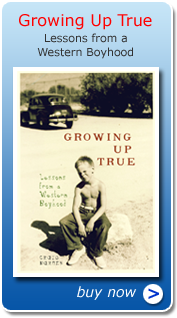Not too many years ago I was invited into Central Asia as a contractor for the US government to do mediation. I was to negotiate a water agreement between Kazakhstan, Uzbeckistan, Tajickistan and Kyrghistan. These were all former republics of the Soviet Union which lie directly north of Afghanistan and are now independent. I flew to Frankfurt, then to Moscow and then forever out across the steppes to a city called Alma Aty. Then we got in cars and drove for hours off into the mountains, circling round beneath great 18,000 foot peaks that rose between Central Asia and China.
We drove over a low mountain pass across broad meadows filled with purple and yellow flowers and into Khyrgistan. Flashing streams flowed white down from the high peaks. Cowboys on horseback loped across fields in the distance; families sat around fires in hay fields cooking lunch in black pots, laughing. In villages as we drove between the tall trees there were girls in long dresses herding ducks along the paths and boys on little horses and men sitting high on great stacks of wood in little horse-drawn carts. Every third or fourth village a policeman would wave his stick at our car and pull us over. Each time we were stopped we had to pay a bribe to drive through that village, like Marco Polo the Italian explorer had had to do 800 years ago. One time they stopped us because, they said, they had never seen a Cadillac. We had to pay for that. Another time we had to go through a sheep dip, a trough of water to decontaminate our under side.
Now the US has announced that it will build an airbase in Bishkek, which is the capital city of this small country and there will be up to 3,000 US soldiers stationed there, plus all the support services and hangers on. Unfortunately the Pentagon did not announce, but it is certain, there will be a new kind of collateral damage, which is what the Pentagon calls damage to civilians. This time it will be collateral damage without any shot being fired.
Prices will go up. Americans will want to do things fast, and by automobile, and to go to the resorts and drink vodka without ritual or friendship. In the old culture of Central Asia even tea takes time, it is a ritual built around conversation, and vodka is often a ceremony of intimacy. We drank vodka when I was a negotiator, slowly, to find out who we could trust, who was KGB or who CIA, who was a family man when he was just a little sloshed and who got stiff and afraid. But for young troops stationed far from home vodka will be consumed for the quick shot, to medicate loneliness, to excuse anger. GIs are not diplomats and a little part of the ceremony of Central Asian life will be cheapened or lost.
I thought, when I left Kyrghistan the last time that I would want to take my family there to see a real village with people on horseback, hot bread in the bizarres, girls tending goats along the road, horses grazing along mountain meadows beside rivers that run clear. It might be the last place we will ever see, I thought, beyond the reach of the Western cultural invasion. That is what I thought. But I was naïve. The Buddha said that the world is only change. The ancient Greeks said that. It must be true. But it is a little sad.
